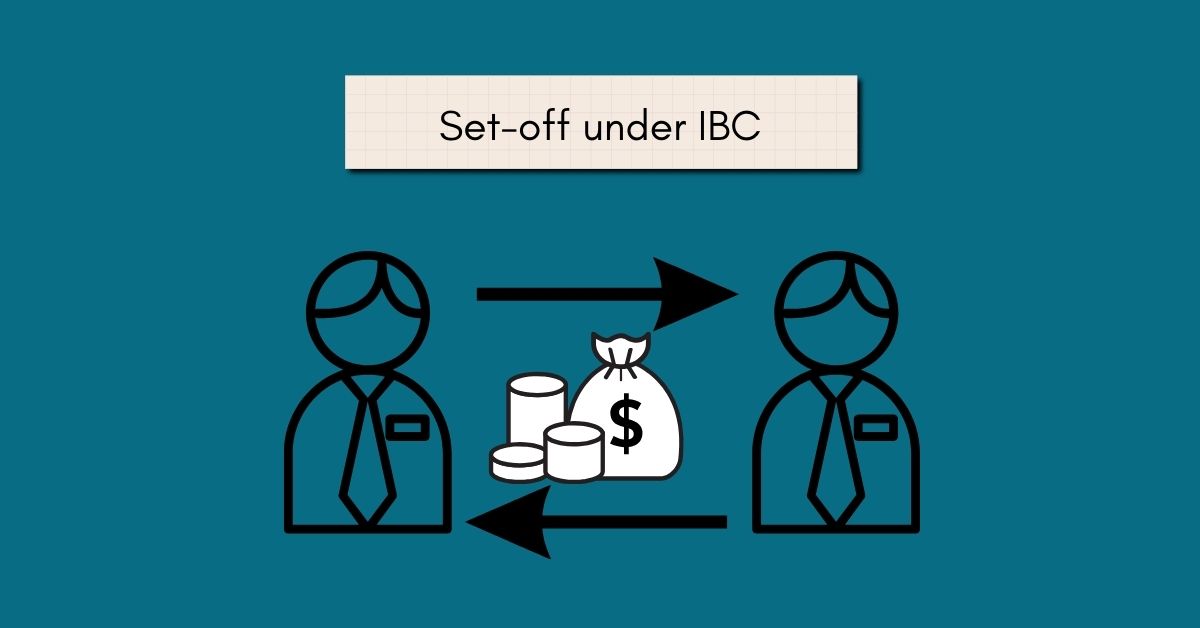Landmark Supreme Court Judgment on Set-off under IBC

Introduction
The Supreme Court recently delivered a landmark judgment on the principle of insolvency set-off under the IBC. The case is referred to as Bharti Airtel Ltd and Another Vs. Vijaykumar V. Iyer and Others.
The Case and Its Context
The Hon’ble Bench, presided over by Mr. Justice Sanjiv Khanna and Mr. Justice S.V.N. Bhatti, interpreted various provisions related to set-off and IBC. They described five different categories of the term ‘set-off’, namely, (a) statutory or legal set-off; (b) common law set-off; (c) equitable set-off; (d) contractual set-off; and (e) insolvency set-off.
The summary of this landmark judgment is divided into the following points:
(a) Contractual Set-off
Contractual set-off is a matter of agreement, rather than a separate application of set-off. The parties are free to mutually agree on the outcomes they desire. However, the contract should be within the bounds of legality and public policy. The right to set-off may be explicit in the words of the agreement, or can be gathered by the existence of an oral or implied agreement to set-off, reflecting an understanding to that effect. The foundation of contractual set-off is based on the same ground as in the case of equitable set-off, which is impeachment of title, albeit contractual set-off is a result of mutual agreement that permits set-off and adjustment.
(b) Statutory or Legal Set-off
Statutory or legal set-off is created by a statute. For example, Order VIII Rule 6 of the Code of Civil Procedure, 1908 states that where a suit for recovery of money is filed, the defendant can claim set-off against the plaintiff’s demand for any ascertained sum of money legally recoverable by the defendant from the plaintiff, but not exceeding the pecuniary limits of the jurisdiction of the court.
(c) Equitable Set-off
Equitable set-off can also be claimed in respect of an ascertained sum of money. However, the claim for an equitable set-off must have a connection between the plaintiff’s claim for the debt and the defendant’s claim to set-off, which would make it inequitable to drive the defendant to a separate suit. The claim for set-off should arise out of the same transaction, or transactions which can be regarded as one transaction. Equitable set-off is allowed in common law, as distinguished from legal set-off, which is allowed by the court only for an ascertained sum of money and is a statutory right.
(d) Insolvency Set-off
Rory Derham on the law of set-offs observes that insolvency set-offs should not be equated with equitable set-offs. This statement reflects the development of law in the United Kingdom, which has resulted in the enactment of special provisions on set-off in case of insolvency. Insolvency set-off under the law of the United Kingdom is permitted when there are mutual debts, mutual credits, and other mutual dealings between the parties at the relevant cut-off time, which is essentially the stage of commencement of the liquidation process.
Role of the Adjudicating Authority and the Nature of Insolvency Set-off
Section 60(5) of the IBC is an enabling provision that entitles the Adjudicating Authority to delve into several aspects to aid and assist the Corporate Insolvency Resolution Process (CIRP). However, it cannot be interpreted as allowing a creditor/debtor to claim set-off in the CIRP.
In the context of the IBC, insolvency set-off is neither automatic nor self-executing. It requires specific conditions and procedures to be met and followed.
Moratorium under Section 14 and Its Implications for Set-off under IBC
The moratorium under Section 14 of the IBC is designed to grant protection and prevent a scramble and dissipation of the assets of the Corporate Debtor. The contention that the “amount” to be set-off is not part of the corporate debtor’s assets in the present facts is misconceived and must be rejected. This underscores the importance of understanding the nature and implications of set-off in the context of insolvency proceedings.
Conclusion: Key Insights into Set-Off under IBC
This landmark judgment provides valuable insights into the principle of insolvency set-off under the IBC. It serves as a crucial reference for all stakeholders in the insolvency process to understand the concept of set-off and its various types and principles. The ruling underscores the importance of adhering to the principles and procedures laid down by the Code. It also highlights the role of the Adjudicating Authority and the implications of the moratorium under Section 14 in the context of set-off.









